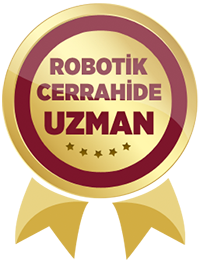BLADDER TUMOR TREATMENT
Treatment of bladder cancer depends on the stage and grade of the tumor, the general condition of the patient, and other factors.
Surgery is a general treatment for bladder tumor. Early bladder tumor, that is, superficial cancer, can be treated with the TUR (transurethral resection-removal of the bladder tumor with closed method) method while being diagnosed at the same time.
In TUR, the doctor inserts the cystoscope into the bladder through the urethra (the urinary tract inside the penis). Then, the doctor breaks the tumor off with the help of a thin ring and burns it. TUR is performed in the operating room and anesthesia (narcosis) is required.
The most common surgery for invasive (deep) bladder tumor is radical cystectomy (surgical removal of the entire bladder), closed surgery (TUR) alone is not sufficient for invasive disease. This surgery (radical cystectomy) is done if the tumor has advanced into the muscle layer. Radical cystectomy operation can also be applied in some cases of superficial bladder cancer (if the superficial tumor covers a large part of the bladder or the treatment methods used in superficial bladder cancer are unsuccessful).
In radical cystectomy, the entire bladder and surrounding lymph nodes are removed. In men, the prostate and its adjacent accessory glands (seminal vesicles) are also removed. In the woman, the ovaries, uterus and part of the vagina are removed. With the bladder removed, the doctor creates a new pathway for urine to be expelled from the body.
In radiotherapy (radiation therapy), high-energy rays are used to kill cancer cells. Like surgery, radiotherapy is a local (regional) treatment, it only affects cancer cells in the treated area. Sometimes this treatment is given before or after surgery or in combination with chemotherapy (drug therapy).
When bladder cancer spreads to other organs, radiotherapy can also be applied to these areas and play a role in relieving the discomfort caused by cancer here.
Chemotherapy means using drugs to kill cancer cells. The doctor may use one or more medications. Chemotherapy can usually be used for post-TUR treatment.
In the treatment called intravesical chemotherapy, the chemotherapeutic agent is given to the bladder through the urethra with the help of a catheter (tube). In this type of treatment, because anticancer drugs remain in the bladder, they affect the cancer cells in the bladder. Treatment is usually given once a week for several weeks. Only superficial disease can be treated with intravesical chemotherapy, this treatment method is not used for invasive disease.
Biological therapy (immunotherapy) is also used when bladder cancer is superficial. Biological therapy is treatment that uses the natural ability of the human body to fight cancer under normal conditions. Like intravesical chemotherapy, biologic therapy can be used alone or after TUR to prevent recurrence. This form of treatment is applied by injecting a substance called BCG, which triggers the defense system, into the bladder. This medicine is kept in the bladder for 2 hours. This treatment is usually applied once a week for 6 weeks and can be extended or repeated if necessary.
Contact
Address
Zorlu Center, Terasevler TA Lobby, Floor: T1, Flat: 103, 34340 Beşiktaş/Istanbul
Phone Numbers
+90 533 256 90 60 – +90 0212 284 84 80
E mail
Information
The digital contents on this website are for informational purposes only and do not replace treatment and diagnosis. Copyright © 2022 Made By Rayzer Digital.

